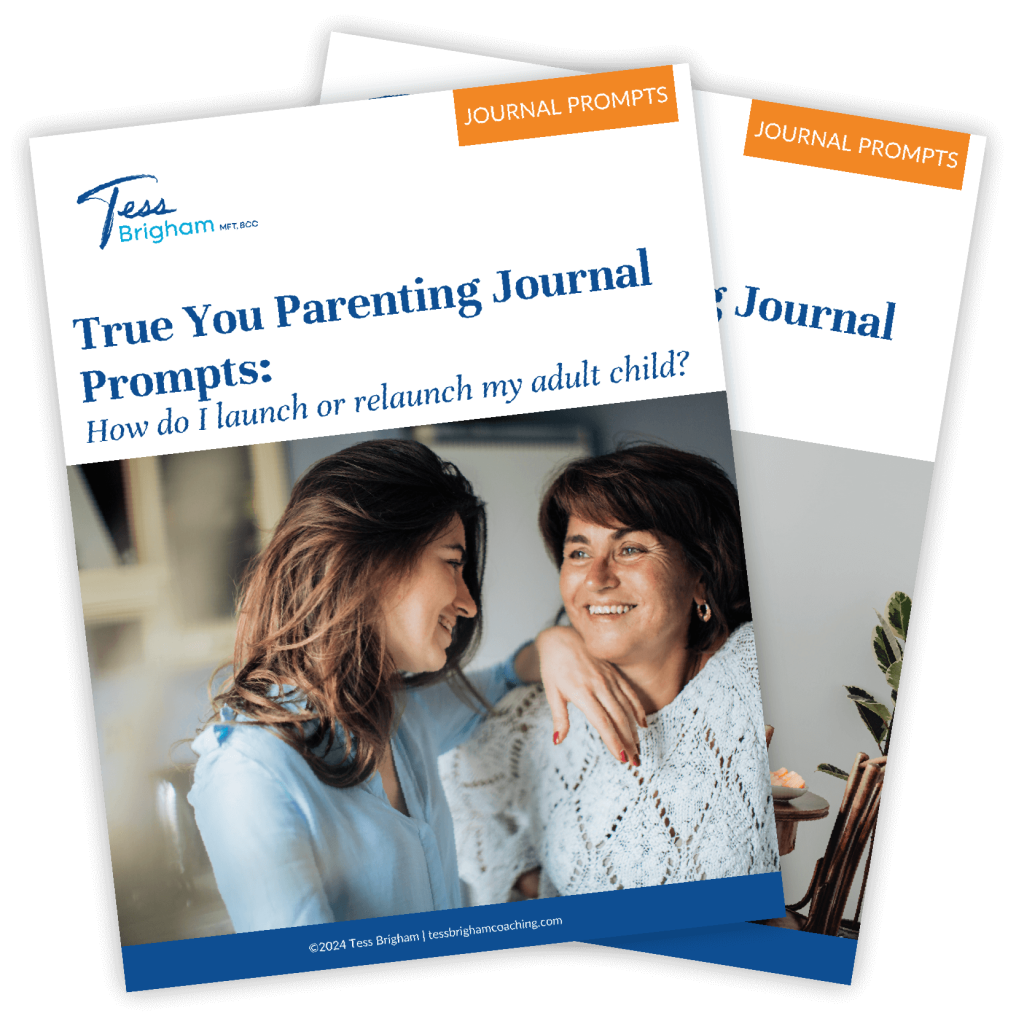How to Find Your Path in Your 20s (without losing your sanity!)
How is it that everyone around you seems so sure of themselves and the path they’re on? Here’s how to find your path in your 20s!
You’re walking down a crowded street, past stores and cafes full of other 20-somethings. As you pass by, you see signs of confidence everywhere: the way the brunette with the knee boots strides into the bookstore. The way the young couple lean into each other over their coffees, knowing smiles on their faces. The way the other passer-bys nod their head as they talk to whoever on their phones.
You know their stories all too well, too.
Your college roommate has committed herself to a life of true freedom. She’s just bought a camper, sold all her stuff, and is moving to Marfa, Texas to make soap.
Your co-worker has just quit to launch his own startup. He’s already planned his exit strategy for acquisition, too.
Then there’s your best friend Claire, who just found “the love of her life”. She’s planning her wedding so she can have at least one of her three kids before age 30.
How is it that everyone around you seems so sure of themselves and the path they’re on? What are your 20s supposed to be all about? How exactly do you find your path?
The myth of shoulds as you find your path
You have probably heard that your 20s are supposed to be “the best years of your life.” If not, you’ve watched enough Kate Hudson and Jennifer Garner movies to know that your 20s should be fabulous. You should have a closet full of designer clothes, a beautifully decorated apartment in the Upper West Side of NYC and an exciting and glamorous job.
These pictures of pop culture, even if you try your best to ignore them, can really do a number on our notions of self. We all know we’re bombarded with images in magazines, TV and film of what life could be, yet few of us can resist how our minds easily turn the “coulds” into the “shoulds”.
The reflection of the people around us, whether they are strangers, friends or family, can also lead to feeling like you “should” be doing more or doing something different all together. Other people look to be in control of making their 20s the best years of their life, so why shouldn’t you?
Psychosocial What?
The only thing you “should” be doing in your 20s is what you are already doing naturally—growing. Yes, you might be done growing physically, but science has been teaching us a lot about how the 20s are actually still a vital part of your childhood psychological development. This is a time where you are developing your “adult” identity, which, you might be surprised to learn, is still growing and evolving well into your 20s.
You might remember the name Erik Erikson from Psych 101. Erikson was a developmental psychologist and psychoanalyst known for his theory of psychosocial development. Erikson believed we all go through eight stages of development throughout our lives.
Erikson’s theory was that at each stage we’re faced with a challenge. As you develop as a person, and successfully complete each of life’s eight stages of growth, you’ll develop a healthy personality and acquire what Erikson called “basic virtues” which he described as “characteristic strengths” that strengthen your ego and ultimately help you manage any possible crisis you may face in your life.
We’re all faced with a challenge at each stage of our lives. If you do not “meet the challenge” or if our caregivers are unable to guide us to meet the challenge, then we begin to develop some unhealthy personality traits. If we are able to complete a stage successfully, then we acquire our character strengths.
The two stages that are most critical as it relates to your 20-something years are: Identity vs. Role Confusion (which happens from 12-18) and Intimacy vs. Isolation(which takes place from ages 18-40).
I believe your 20s are an extension of the Identity vs. Role Confusion stage overlapping with the Intimacy vs. Isolation stage, largely due to our changing culture and civilization.
According to Erikson, failure to successfully complete a stage can result in a reduced ability to complete further stages and therefore a more unhealthy personality and sense of self. Lucky for us, however, these stages can be resolved successfully at a later time.
The Times They Are a Changin’
Times have really changed since Erikson. Because we live longer, we’re taking longer to finish school and move out of our parent’s homes. So we’re getting married later and having children later. It’s unrealistic to expect someone to completely understand their “identity and place in society” and find their path by the age of 18.
Yet, because you’re on your own during your 20s, you’re also starting to form relationships that may lead to long-term commitment, which is the goal of the Intimacy vs. Isolation stage.
This is why your 20s are so overwhelming, complex and stressful—because you’re trying to establish a career, begin relationships (intimate and otherwise) while simultaneously trying to form your identity.
Because 20-somethings feel so much pressure to have an established career and a significant relationship by age 30, they tend to skip or rush through the “Who am I and what do I want?” aspect of their development in their quest to figure out their path.
Each stage has an existential question and during the stage of Identity vs. Role Confusion the core question is: Who am I and what can I be? The problem is that you can’t answer that question by age 18. These two questions take time and experience to answer.
Finally, and most importantly, your identity, what you want and what you value will continue to morph and grow throughout your life. Many 20-somethings believe they need to figure out now who they are for the rest of their lives. As if once you decide on a career, a partner, a way of life, it’s set in stone for the rest of your life.
No wonder so many of your peers look so confident, yet inside are experiencing “a quarter-life crisis” Like you, many 20-somethings feel stuck and can’t decide what to do while others are making bold changes to try to define meaning for themselves.
One thing you can be sure of, for most people in their 20s, there is a lot of work to be done both internally and externally before you can really find your path.
Building Your Foundation to Find Your Path
If you look at your entire life like a house, your 20s are the time when you begin the process of building the foundation. When you’re a kid, your parents, friends, teachers and the world around you are helping you create the blueprint of what your house will look like. Your teen years are about clearing out the space and pouring the concrete.
Your 20s are the time when you start to create the framework for what the house will eventually become. The more solid your foundation, the more thoughtful and detailed the framework is, the stronger and more sturdy your house will eventually become. This his how you find your path.
In other words, if you put time and energy into figuring out who you are and what you want from life now, in your 20s, the stronger and more sure of yourself you will be in your 30s, 40s and 50s.
Jeffrey Jensen Arnett in his book, Emerging Adulthood also refers to the Erikson Stages of Development when talking about young adulthood. Arnett writes: “Emerging adults who come to know themselves well, and who develop a clear idea of what their abilities are and what they want to do, have a good foundation for the decisions they will make as adults.”
The 20s are the ideal time to explore and figure out who you are. You’re an adult now, probably out of the house and away from your parents. Most 20-somethings are not married and don’t have children, which allows you to completely focus on yourself and what you want from this world.
In the development of your life, this is the time to explore all the possibilities of life in order to form your identity.
As I said before, you will continue to morph and grow as a person—we’re never done evolving. Nonetheless, if you do this work now, you can gain confidence, clarity and a strong sense of self, and subsequently, each stage of your life will be easier and less confusing.
The Paralyzing Nature of Choices When Trying to Find Your Path
As I mentioned in the first section, most 20-somethings in today’s world are going through two developmental stages at once, which means that there’s twice as much developmental work to be done and twice as many challenges to face.
One of the biggest challenges I see twenty-somethings face are making choices as they work on finding their path.
Meg Jay, PhD in her book The Defining Decade: Why your twenties matter-and how to make the most of them now tells the story of Ian.
Ian told me his twentysomething years were like being in the middle of the ocean, like this vast, unmarked body of water. He couldn’t see land in any direction, so he didn’t know which way to go. He felt overwhelmed by the prospect that he could swim anywhere or do anything. He was equally paralyzed by the fact that he didn’t know which of the anythings would work out. Tired and hopeless at age twenty-five, he said he was treading water to stay alive.
The image that Ian describes of floating out in the ocean is a perfect way to describe the feeling that many 20-somethings have when they are faced with making decisions.
Now that you’re away from your parents, out of college, unmarried with no children; there’s nothing stopping you from traveling the world, moving across the country, pursuing a career that you always dreamed of or dyeing your hair 15 different colors or starting a business from your living room.
While in theory having unlimited choices sounds great—it’s not. When we’re faced with too many choices, we instantly get overwhelmed and usually end up not picking anything, or we finally narrow it down to a few choices and then another one pops up, only to confuse us further.
Meg Jay writes, “There is certain terror that goes along with saying ‘my life is up to me.’ It is scary to realize there’s no magic, you can’t just wait around, no one can really rescue you, and you have to do something. Not knowing what you want to do with your life—or not at least having some ideas about what to do next—is a defense against that terror.” (If you’re interested in learning more about what Meg Jay has to say on this subject, check out her Ted Talk.)
What happens when you finally make a choice? Once you make a choice and choose a certain path to go down, you begin to realize that you’ll be giving up all the other options available to you. Ultimately that feels like a loss.
That feeling of loss can then make you start to doubt your choice. The problem is that most of us mistake that feeling of loss for regret and then we start second-guessing our original decision. This is what keeps many 20-somethings stuck when it comes to decision-making, or cause so many others to double down and go “all-in” on certain choices (like selling all their possessions and moving to Marfa.)
Make fear your friend
We all spend a lot of time and energy trying to manage and limit our fear. But actually, we all need a certain amount of anxiety and fear in our lives, because it is a natural, biological response that keeps us safe and away from real danger.
There seems to be this myth that if we don’t feel any fear about a particular choice or decision, then it’s invariably the “right” decision. Wrong. Attempting to live a fear-free existence and always being 100% sure about every choice you make, is a losing battle.
Recognize that anytime you plan to take a big leap into a new career or relationship, or you are thinking about pursuing your dream of being a writer, comedian, artist; you will feel fear, and that’s okay.
Instead of trying to manage the fear or trying to completely get rid of it, acknowledge it, make friends with it and recognize that it will always be there, but you don’t have to listen to it.
The Danger of White Noise
As I mentioned earlier, when you’re in your 20s, you’re in the midst of forming your identities while simultaneously trying to establish yourself in the world. As your sense of self begins to form and take shape, it can be difficult to not let all the outside noise of other people get you distracted as you find your path.
What do I mean by outside noise? Outside noise is the voice of everyone else. It’s all of your friends, family, colleagues, bosses, even the person on the train sitting next to you that tells you who you should be and how you should live your life.
Outside noise loves the word “should.” It’s constantly telling you, “you should do this” and “you should do that.” As you get older, your sense of self, your values and your beliefs about the world become sharper and clearer to you, but that takes time and experience.
It can be very hard when you are in your 20s to constantly combat the outside noise and the shoulds to stay the course and do what you want to do, do what makes you happy and do what feels right to you.
So what’s a 20-something to do?
The most important thing you can do now is to learn to tune out all the outside noise. As I mentioned earlier this is the noise from your friends and family about what you should be doing with your life. But it’s also the noise of social media—especially Facebook.
While being on Facebook is a bit of a necessary evil (I’m on there, too, so I can’t criticize it), you have to be discerning as you scroll through your feed.
Always remember that people put their best “face” forward on Facebook. They’re only posting pictures of themselves looking fabulous, eating amazing meals and traveling to exotic locations. No one is posting themselves in their sweatpants on a Saturday night with a pint of Ben and Jerry’s—even though we’ve all been there.
Thou Shalt Find Value…
My hope for all 20-somethings is to try and see this time as your opportunity to “try on” many different kinds of jobs, relationships, apartments, cities, styles, and ultimately experiences. In many ways, your 20s are more about learning what you don’t want more than what you do want. This is all a process as you find your path in life.
While your choices feel limitless, which can be scary, it’s also very exciting to get to try new things, grab new opportunities and to continue to keep open to new experiences.
I believe it’s important for your to try and experience new things because this is the best way to determine what you want and don’t want and to start making choices to see what’s right for you. Through this process you’ll begin to understand yourself and what you want your life to look like.
This is also your opportunity to determine the kind of person you want to be. Society tells you that once you turn 18 you are now an adult, but we all know that’s not true. Becoming an adult is a process that involves learning how to deal with various life situations.
One concept I teach my clients is learning how to determine their values. Our values represent what’s important to us and ultimately what we do, how we act must be aligned with our values.
The 20s are your opportunity to identify and shape your values. You may determine that you value travel. That the kind of work you do isn’t very important as long as you have autonomy and the freedom to travel at least 2 months a year. For you, travel and freedom have more value over being the CEO of a company.
You may find that family is important to you, so you decide to move home to be closer to your parents. You may discover that doing yoga every morning makes you feel relaxed and your day goes so much better, but you will have to give up some social activities with friends in order to wake up early to practice yoga.
As you learn about yourself, you’re also learning what’s important to you and making time for it in your life. The more you understand about your values, the easier it will be to make decisions and choices and find your path in the future.
Inner confidence is earned. It cannot be fashioned from a look in a magazine, or a scene from a move, or based on what you think other people are doing or what other people think you should be doing.
Inner confidence is acquired when you make the brave choices every day to tune out the white noise, embrace your fears and be true to what you value.
And when you make decisions based on your values, then you truly are an adult. And this is what it looks like to find your path.
You might also like…
The 7 Steps to Suriving Your 20s
What to Do When You Don’t Know What to Do
How to Make a Decision, Create a Plan of Action, and Seek Help














0 Comments
Trackbacks/Pingbacks